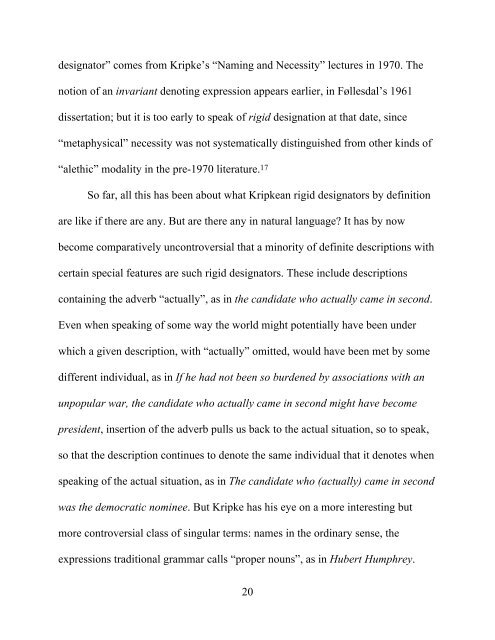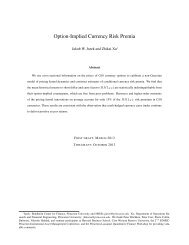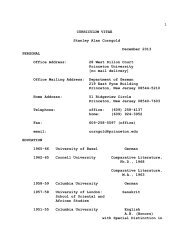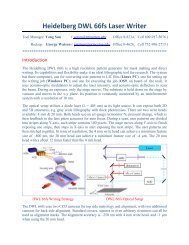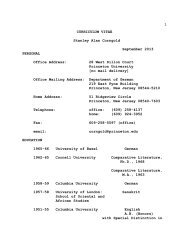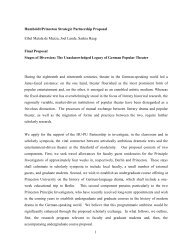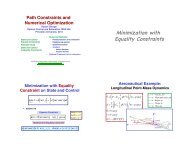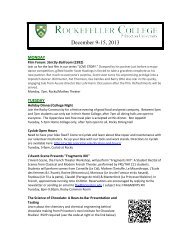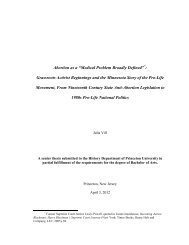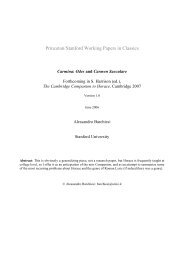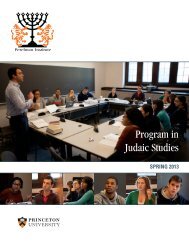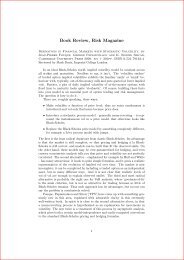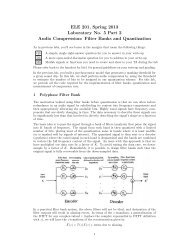On a Derivation of the Necessity of Identity - Princeton University
On a Derivation of the Necessity of Identity - Princeton University
On a Derivation of the Necessity of Identity - Princeton University
Create successful ePaper yourself
Turn your PDF publications into a flip-book with our unique Google optimized e-Paper software.
designator” comes from Kripke’s “Naming and <strong>Necessity</strong>” lectures in 1970. The<br />
notion <strong>of</strong> an invariant denoting expression appears earlier, in Føllesdal’s 1961<br />
dissertation; but it is too early to speak <strong>of</strong> rigid designation at that date, since<br />
“metaphysical” necessity was not systematically distinguished from o<strong>the</strong>r kinds <strong>of</strong><br />
“alethic” modality in <strong>the</strong> pre-1970 literature. 17<br />
So far, all this has been about what Kripkean rigid designators by definition<br />
are like if <strong>the</strong>re are any. But are <strong>the</strong>re any in natural language? It has by now<br />
become comparatively uncontroversial that a minority <strong>of</strong> definite descriptions with<br />
certain special features are such rigid designators. These include descriptions<br />
containing <strong>the</strong> adverb “actually”, as in <strong>the</strong> candidate who actually came in second.<br />
Even when speaking <strong>of</strong> some way <strong>the</strong> world might potentially have been under<br />
which a given description, with “actually” omitted, would have been met by some<br />
different individual, as in If he had not been so burdened by associations with an<br />
unpopular war, <strong>the</strong> candidate who actually came in second might have become<br />
president, insertion <strong>of</strong> <strong>the</strong> adverb pulls us back to <strong>the</strong> actual situation, so to speak,<br />
so that <strong>the</strong> description continues to denote <strong>the</strong> same individual that it denotes when<br />
speaking <strong>of</strong> <strong>the</strong> actual situation, as in The candidate who (actually) came in second<br />
was <strong>the</strong> democratic nominee. But Kripke has his eye on a more interesting but<br />
more controversial class <strong>of</strong> singular terms: names in <strong>the</strong> ordinary sense, <strong>the</strong><br />
expressions traditional grammar calls “proper nouns”, as in Hubert Humphrey.<br />
20


